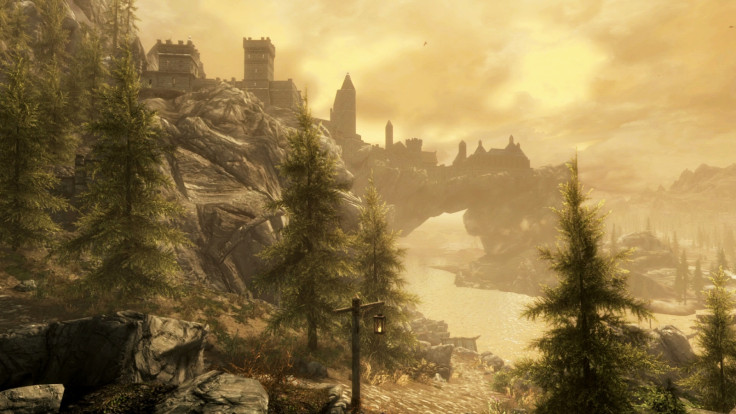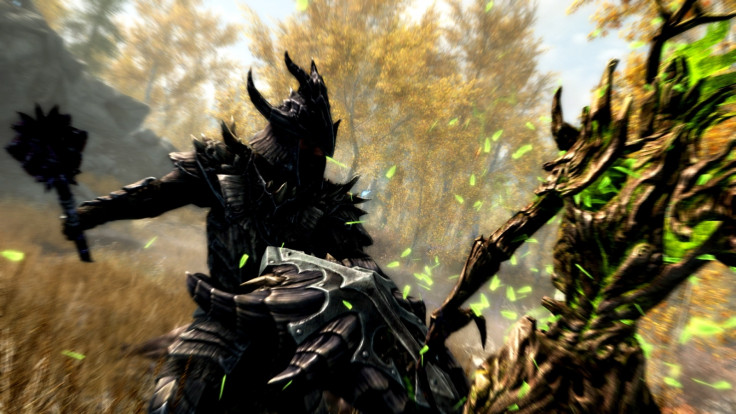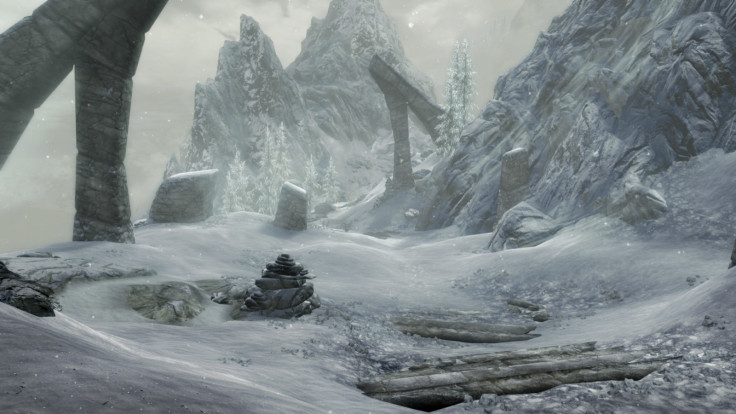Can a Skyrim Special Edition really take on premier RPGs like The Witcher 3?

The rumours were true after all: we will be getting a high-definition remake of Bethesda's 2011 open-world RPG, The Elder Scrolls 5: Skyrim. It's a welcome addition to most of our gaming piles of shame, but how will it fare against the open-world RPGs of the past five years?
Look at what we've got in our goody bags recently: The Witcher 3, Uncharted 4, Dragon Age: Inquisition, the upcoming Final Fantasy 15, and Bethesda's own Fallout 4. Skyrim was revolutionary and well-balanced in its presentation of skills and perks, but in comparison with newer and more polished games, Skyrim seems a little bit like the slightly out-of-touch older parent.
Parents are the reason the younger generation exist, of course, but they're also the ones constantly moaning about youths and voting for people who promise to make the world just like it was 50 years ago. The Elder Scrolls series laid the foundation for games like The Witcher 3, but CD Projekt Red's opus went above and beyond what Skyrim ever could, weaving intricate plots about real-world events – miscarriage, homophobia, romantic betrayal – into a high-fantasy setting. Skyrim just doesn't have that depth, that willingness to connect with the player; it exists as a game to entertain and distract, not as a social commentary.
Maybe it doesn't need to match up to The Witcher 3 anyway. Skyrim has always been such a unique proposition, where arsing around in the world is just as much fun as following the main quest-line. People play Skyrim for the joy of putting a bucket over a chicken, throwing wheels of cheese at people, and "Thu'um Shouting" some annoying guard off a nearby cliff. Skyrim has this limitless interaction with items that creates its own sort of game, and if you're the kind of person who wants to be able to pick up every spoon and loaf of bread in a game and chuck them at someone, you probably have Elder Scrolls to blame.
There are so many things that exist now that were inspired by Elder Scrolls games – think of Fallout 4's engaging loading screens, complete with flavour text on the game's objects; The Witcher and Dragon Age: Inquisition's epic, unscripted fights with colossal animals; sudden pieces of information found in the back of a cave or as a result of some side-quest that triggers an unexpected adventure.

The difference is that those things used to be the set pieces, now they are something bigger. In Dragon Age: Inquisition, sticking a big piece of pointy iron right into a dragon's face is incredibly satisfying, but it has a backdrop of political intrigue, complex diplomatic decisions and the constant appeal of trying to woo your combat companions. It is everything Skyrim was, but more.
Of course, the biggest argument against a rerelease of Skyrim is that it's not aged perfectly. For all its accomplishments, it's still a Bethesda game, with all the bugs and weird flappy faces that go along with that status. The combat is a bit wobbly, the fetch quests are simple and repetitive, and the plot is a little underwhelming compared to the likes of The Witcher 3's intricate and masterful writing. Basically, if you didn't like Fallout 4, you won't like Skyrim – its flaws are largely the same, even five years on.
A remastered Skyrim is still an alluring prospect with all its new textures and depth-of-field and better water (still a big deal in gaming, for whatever reason). But we won't be seeing any huge changes that might bring it up to the calibre we expect, or at least hope for, today. We'll still have loading screens, the dialogue will still be repetitive and the writing will still be clunky, complete with that irritating insistence on overhearing exposition that fantasy is so fond of. Bethesda doesn't have time to change all that – it's a remaster, not a remake; the same Skyrim package in nicer wrapping.

It has even less time to build what the fans really want: a remaster of one of the older Elder Scrolls games, preferably Morrowind or Oblivion. But if Skyrim's once-novel ideas seem dated only five years on, it's unlikely that Morrowind and Oblivion would stand up to the ravages of time in an industry where 10 years represents an entire era.
Despite Skyrim's ageing ideas – and its hallmark Bethesda issues – it's still by no means a bad sell. Finally, console players can get in on the modding game that PC owners have been doing for years, whether they choose to make the game a little more appealing with new quest-lines and fewer bugs, or decide to turn all the dragons into Thomas the Tank Engines and make everyone naked. Giving console players a chance to get their hands on the same level of power and control as their PC peers is a smart move by Bethesda.
So yes, maybe Skyrim can't quite stand up to the depth and breadth of modern RPGs, despite all it can still offer. Perhaps its godawful hairstyles, temperamental NPCs and weird physics that make cabbages jump off shelves as soon as you approach are all too much for a gamer who's used to nuance and Lara Croft's dynamic ponytail. It certainly can't stand up to the incredible Witcher 3 in terms of story, but that almost feels unfair, because games will be trying to match that for years to come.
There are two approaches to Skyrim really: go into it with the expectations of The Witcher 3 hanging over you and it won't be able to match up. It's not a clever spider-web of narrative, it's an RPG that doesn't want you to play a specific character, an RPG that lets you be the all-powerful High King of Skyrim if you want, or the apple-stealing, cheese-munching miscreant that would kick children off the highest mountain with the right mods installed. There are no shoes to fill, no country to lead, no expectations to live up to – just dragons, cabbages and a whole world at your feet.
For the latest E3 2016 news head to IBTimes UK's hub page
© Copyright IBTimes 2025. All rights reserved.



















